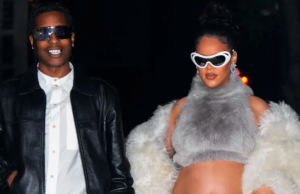In a bold and controversial move, renowned college basketball coach Kim Mulkey has made headlines by publicly demanding the expulsion of WNBA star Brittney Griner from the U.S. Olympic team. Mulkey’s remarks, which were made during a recent interview, have sparked a firestorm of debate and controversy, reflecting deeper tensions in both sports and politics.

The controversy centers around Brittney Griner’s recent legal troubles and her subsequent detention in Russia. Griner, a prominent figure in women’s basketball, was arrested in February 2022 on drug-related charges in Russia. Her arrest and subsequent imprisonment have been a matter of international concern, with significant diplomatic efforts being made to secure her release. Griner was finally released in December 2022 in a high-profile prisoner exchange between the U.S. and Russia.
Mulkey’s demand for Griner’s expulsion from the U.S. Olympic team is rooted in her belief that Griner’s actions are inconsistent with the values and principles she believes should be upheld by American athletes. Mulkey argues that Griner’s legal issues in Russia reflect poorly on American sports and that her presence on the Olympic team undermines the integrity of the U.S. representation on the global stage.

Critics of Mulkey’s stance argue that her comments are not only inflammatory but also ignore the complex geopolitical realities surrounding Griner’s situation. They point out that Griner’s detention in Russia was a result of circumstances that were beyond her control and that her release involved significant diplomatic negotiations. They argue that Mulkey’s call for Griner’s expulsion is a reflection of a simplistic and punitive approach to a situation that is anything but straightforward.
Supporters of Mulkey, on the other hand, claim that her remarks highlight a necessary conversation about accountability and national pride. They argue that athletes who represent their country should embody the highest standards of conduct, and Mulkey’s comments underscore a broader debate about the responsibility of athletes to uphold national values.
The U.S. Olympic and Paralympic Committee (USOPC) has yet to make an official response to Mulkey’s demands. However, the organization has historically maintained a stance of inclusivity and support for athletes, particularly those who have faced personal or legal challenges. The USOPC’s position on this matter will be closely watched, as it could set a precedent for how similar issues are handled in the future.

Mulkey’s comments also come at a time when the intersection of sports and politics is increasingly scrutinized. Athletes are often expected to navigate complex personal and political landscapes while maintaining their roles as public figures and representatives of their countries. The tension between personal conduct and national representation is a recurring theme in sports, and Mulkey’s remarks have certainly brought this issue to the forefront.
In conclusion, Kim Mulkey’s demand for Brittney Griner’s expulsion from the U.S. Olympic team has sparked a contentious debate that touches on issues of national loyalty, athlete conduct, and the role of sports in international diplomacy. As this story continues to develop, it will be important to consider the broader implications of Mulkey’s statements and the potential impact on the future of American athletics. The debate serves as a reminder of the intricate and often fraught relationship between sports and national identity, and the challenges that arise when these two spheres intersect.
Keanu Reeves is one of the most beloved celebrities of his generation. There is perhaps no one who has met him who would speak an ill word of him. So when the beloved actor revealed something unfortunate that happened to him, a lot of people were immediately concerned.
Keep reading to know more.
Keanu Reeves has recently been busy filming his latest project Good Fortune. The actor appeared on The Late Show with Stephen Colbert earlier this week and recounted a story which had some people concerned.
The 59-year-old actor shared how he broke his kneecap while filming. Reeves, who is known for his action-packed filmography with movies like The Matrix and the John Wick series, revealed how he was felled by a rather innocuous thing.
Colbert asked Reeves, “What happened? Who got to you?”

The actor replied playfully in a tough guy voice, “No one got to me,” adding, “Accident got to me.”
“Were you jumping from building to building? Were you doing a cartwheel past razor blades? What were you doing?” Stephen further probed.
“No, Stephen, I was walking into the dressing room, a room. I will tell it quick,” Keanu explained.

Keanu shared that it happened while he was filming a scene for an upcoming comedy titled Good Fortune with Aziz Ansari, and Seth Rogen. The three of them were in a cold plunge, and Keanu was enjoying it. After they finished, he started doing the “cold shuffle” in a room with protective carpets. Unfortunately, his foot got caught in a pocket as he was doing so.











